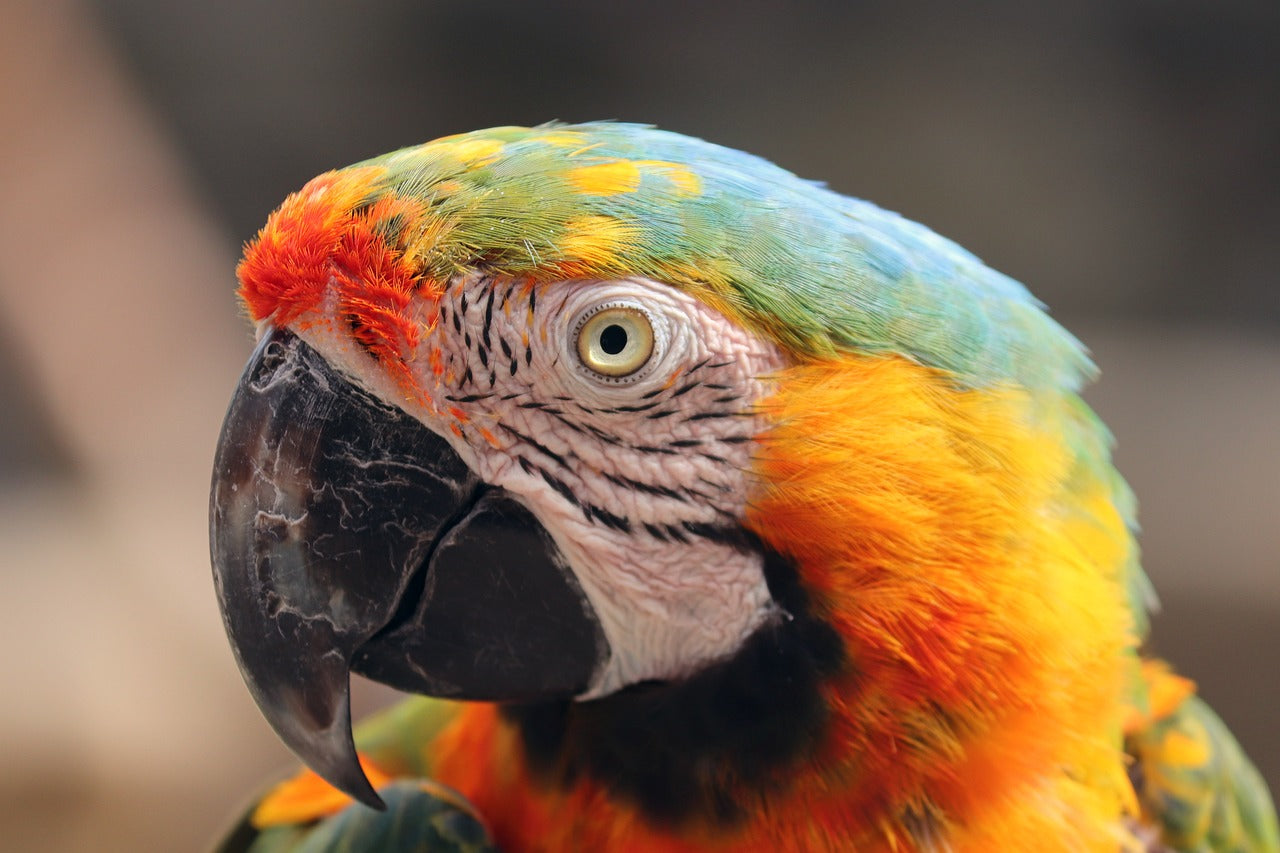
Basic Guide to Keeping Parrots & Parrot-Like Birds as Pets
Parrots are intelligent, affectionate, and charismatic birds that make wonderful pets. However, keeping a parrot requires dedication, knowledge, and proper care to ensure they live long, healthy lives.
In this guide, we’ll cover the best diet for parrots, what they should drink, the best parrots for beginners, foods to avoid, and the best talking parrot for first-time owners. Plus, we’ll highlight some of Haith’s best seed mixes for keeping your pet happy and healthy
Best Diet for Parrots and Their Relatives
-

Fresh Fruits
Around 30-40% of your parrot’s diet should consist of fresh fruits and vegetables. Some of the best options include:
Fruits: Apples, pears, bananas, berries, mangoes, pomegranates, and melons.
Vegetables: Carrots, spinach, bell peppers, broccoli, sweet potatoes, and zucchini.
Always wash fruits and vegetables thoroughly to remove pesticides and cut them into manageable pieces for your bird.
-

Premium Seed Mixes
For parrot owners, Haith’s offers some of the best seed mixes tailored to different species. These include:
Parrot Food – A nutritious, balanced blend for larger parrots.
Parakeet Mix – A high-quality mix designed for parakeets.
Lovebird Mix - A great choice for small parakeets and lovebirds.
-

Seeds and Nuts
While seeds and nuts are a natural part of a wild parrot’s diet, they should be given in moderation, as they are high in fat. Offer sunflower seeds, almonds, walnuts, and flax seeds as occasional treats.
-

Whole Grains and Legumes
Brown rice, quinoa, oats, lentils, and chickpeas provide important protein and fibre for your bird’s diet.
-

Cuttle & Mineral Blocks
These provide calcium and other important
minerals that support bone and beak health, particularly for egg-laying
females.
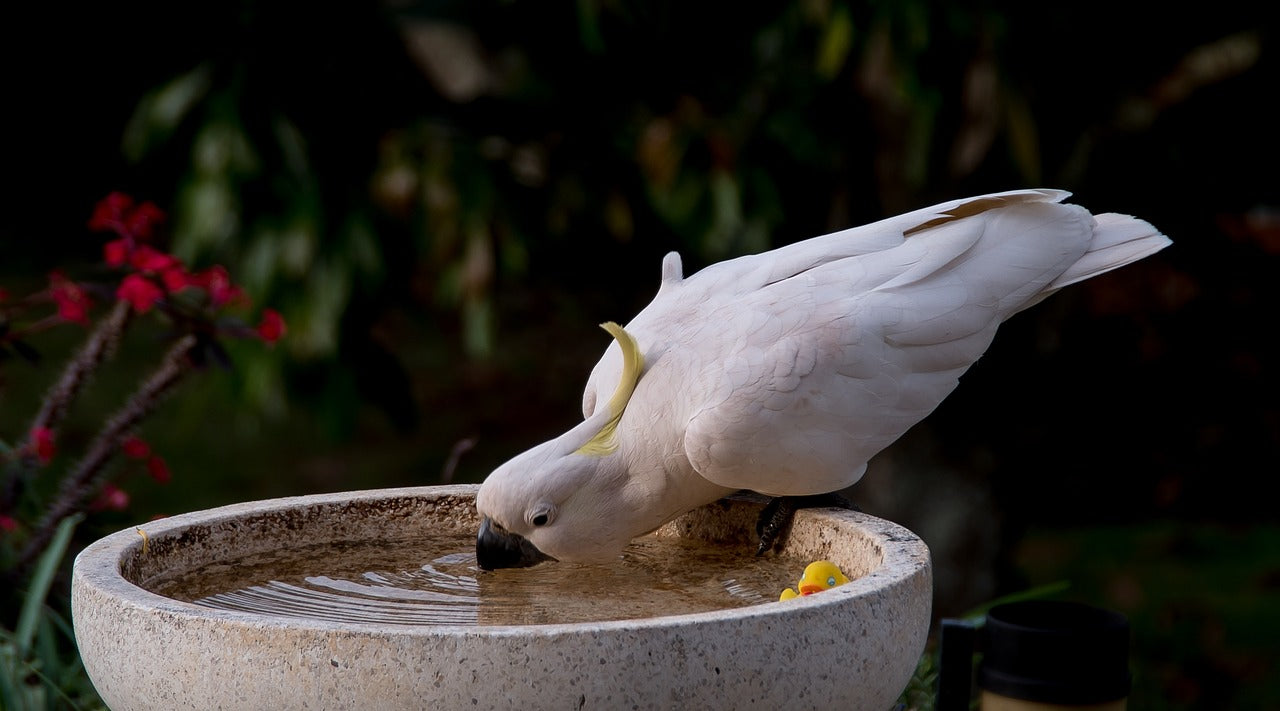
What Do Parrots Drink?
Parrots, like all birds, need fresh, clean water available at all times. Here are some tips for ensuring proper hydration:
-
Provide filtered or bottled water instead of tap water, which may contain harmful chemicals.
-
Change water at least twice daily to keep it clean and fresh.
-
Avoid flavoured or sugary drinks, as they can be harmful to your bird’s health.
-
In hot weather, misting your bird with water can help prevent dehydration.
What Not to Give Parrots
Certain foods and substances are toxic to parrots and should always be avoided!
Collapsible content
Avocado
Highly toxic and can cause heart failure in
parrots.
Chocolate and Caffeine
Can cause serious heart and nervous system problems.
Alcohol
Extremely toxic and should never be given to birds.
Onions and Garlic
Can lead to digestive issues and anaemia.
Fruit Pits and Apple Seeds
Contain cyanide, which is dangerous for parrots.
Dairy Products
Birds lack the enzymes to digest lactose
properly.
Salty and Sugary Foods
Can lead to obesity and other health issues.
Raw Beans
Some raw beans contain toxins that can be fatal to birds.
Premium Mixes for Parrots & Parrot-Like Birds
-
Cockatiel & Parakeet Variety Mix
Regular price From £5.40Regular priceUnit price / per£0.00Sale price From £5.40 -
Parrot Food (Superior Quality)
Regular price From £5.95Regular priceUnit price / per£6.78Sale price From £5.95Sale -
 Sale
SaleParakeet Mixture
Regular price From £4.95Regular priceUnit price / per£5.41Sale price From £4.95Sale
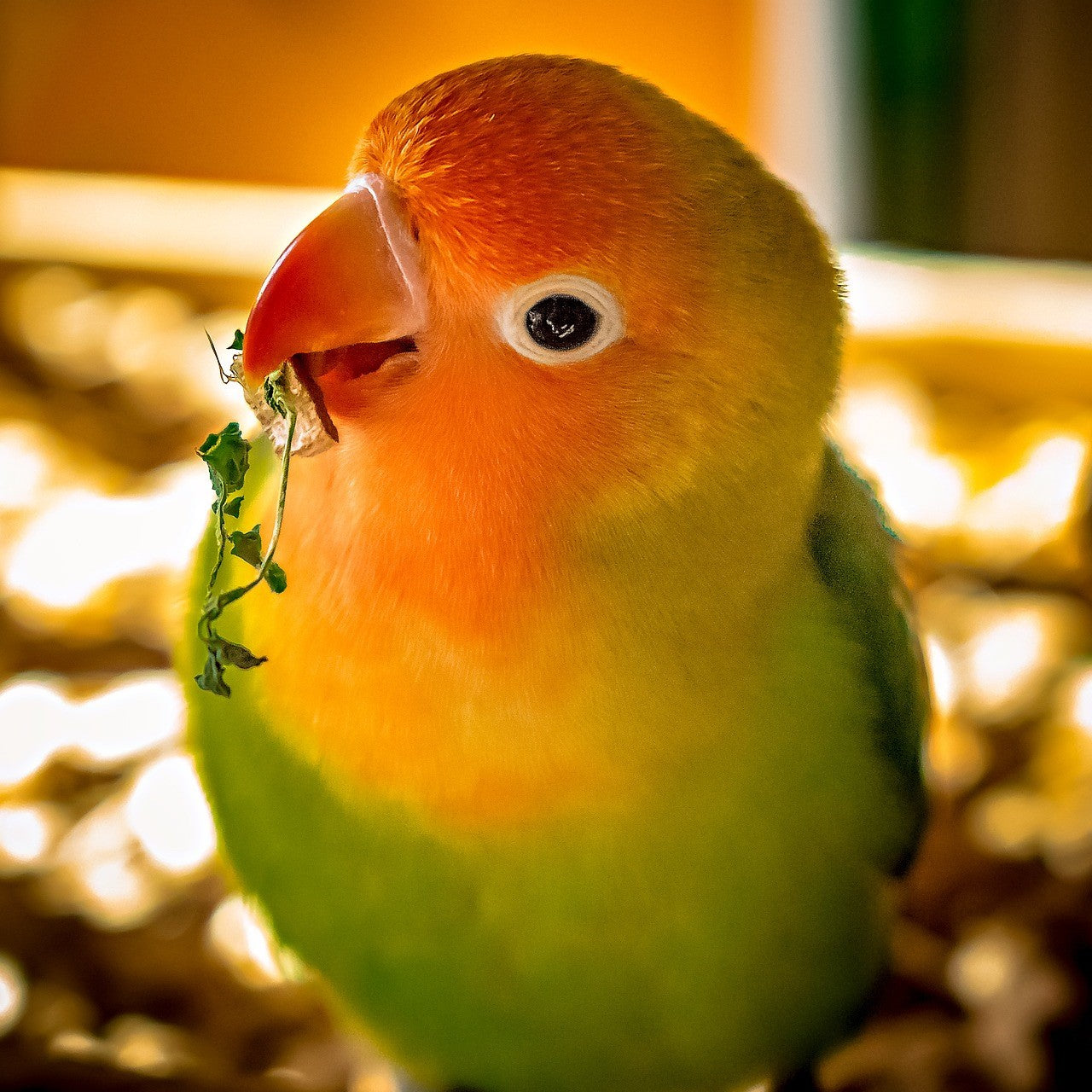
Best Parrots for Beginners
If you’re new to keeping parrots, it’s important to choose a species that is easy to care for, friendly, and relatively low-maintenance. Here are some of the best beginner-friendly parrots:
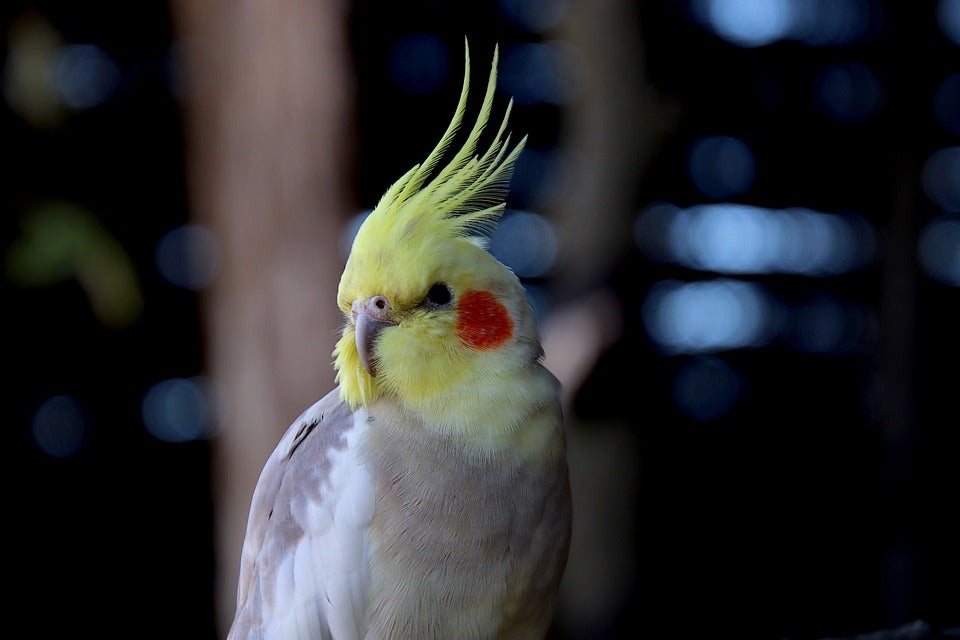
Cockatiels
Cockatiels are gentle and affectionate birds with a playful nature. They can learn to whistle and mimic simple words, and they bond well with their owners.
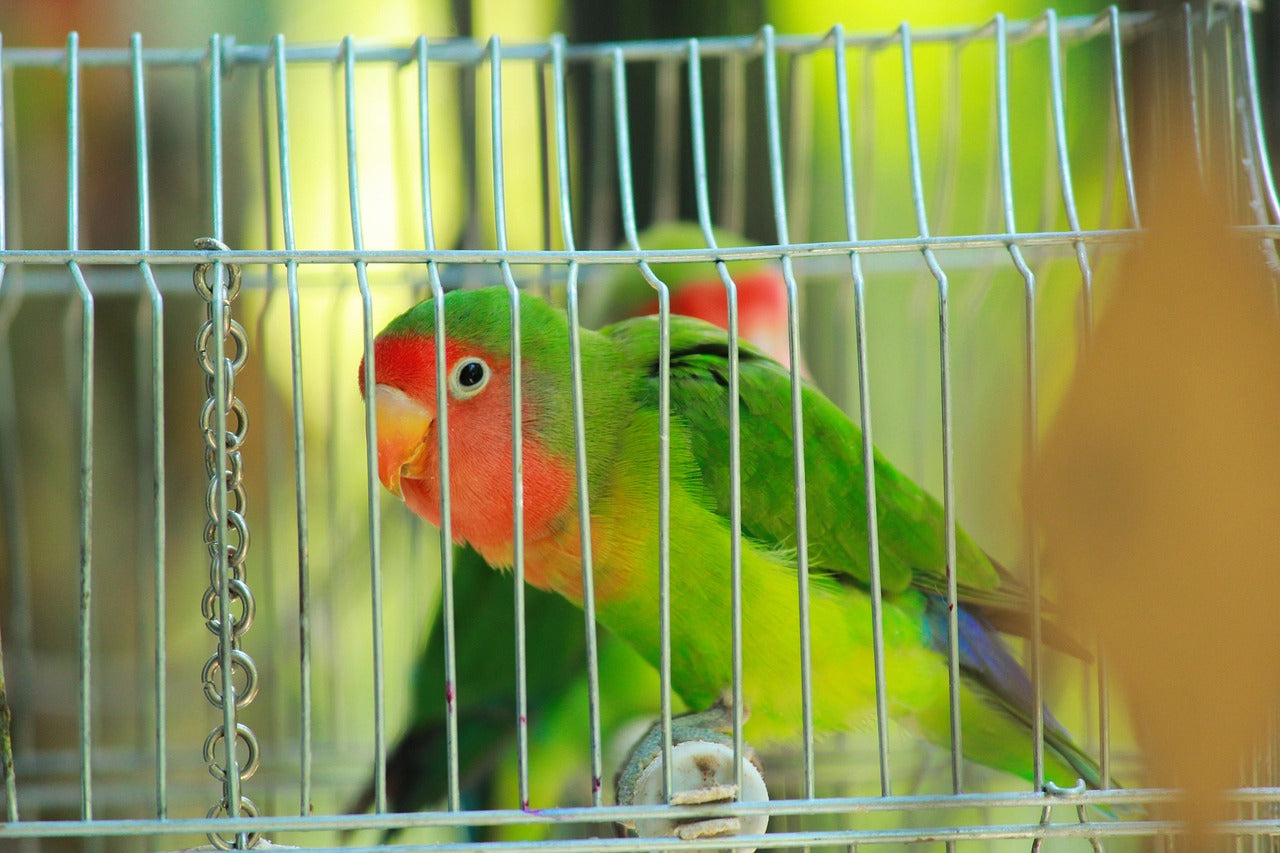
Lovebirds
Lovebirds are small and colourful with playful personalities. They require daily interaction and socialisation but are a great option for beginners who want a lively companion.
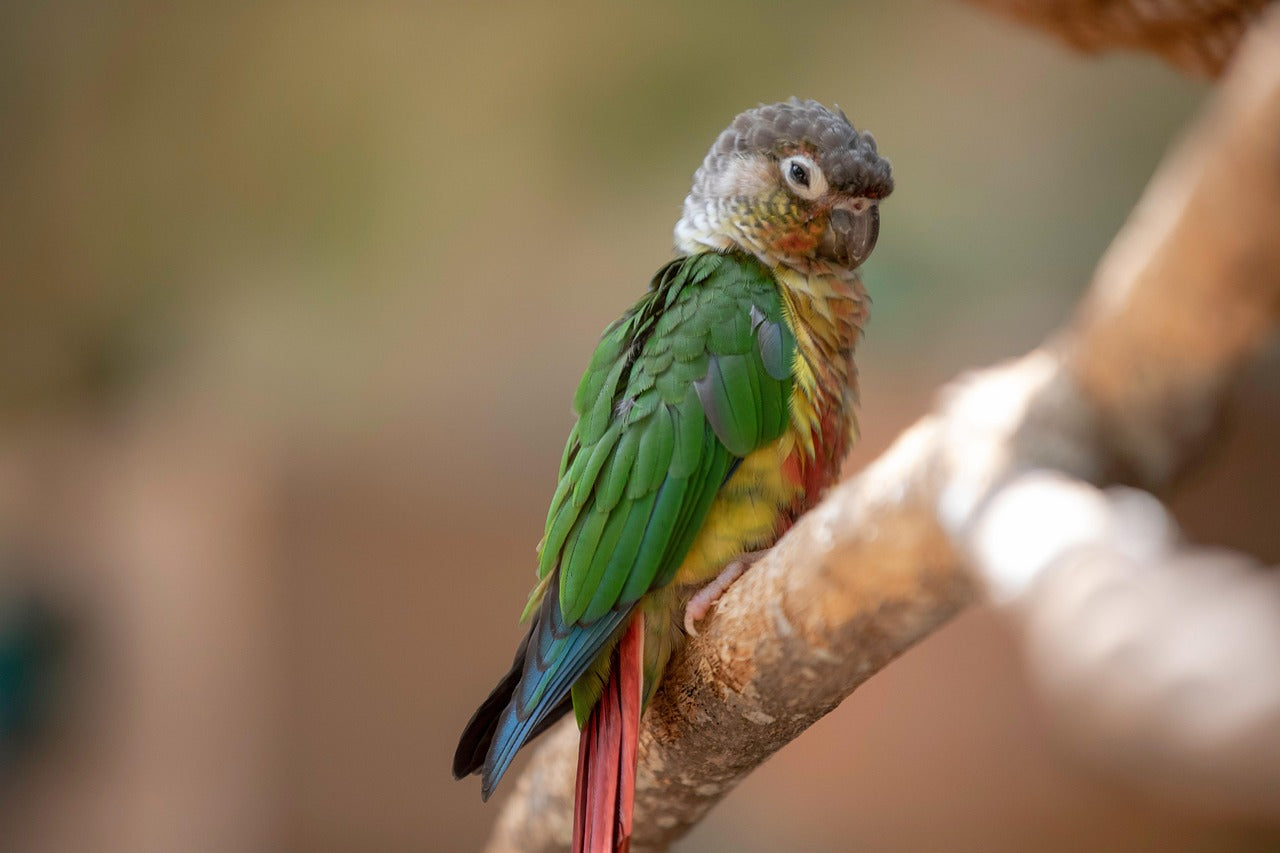
Green-Cheeked Conures
These small parrots are affectionate and curious. While they require daily interaction, they are quieter and easier to train than some larger parrots.
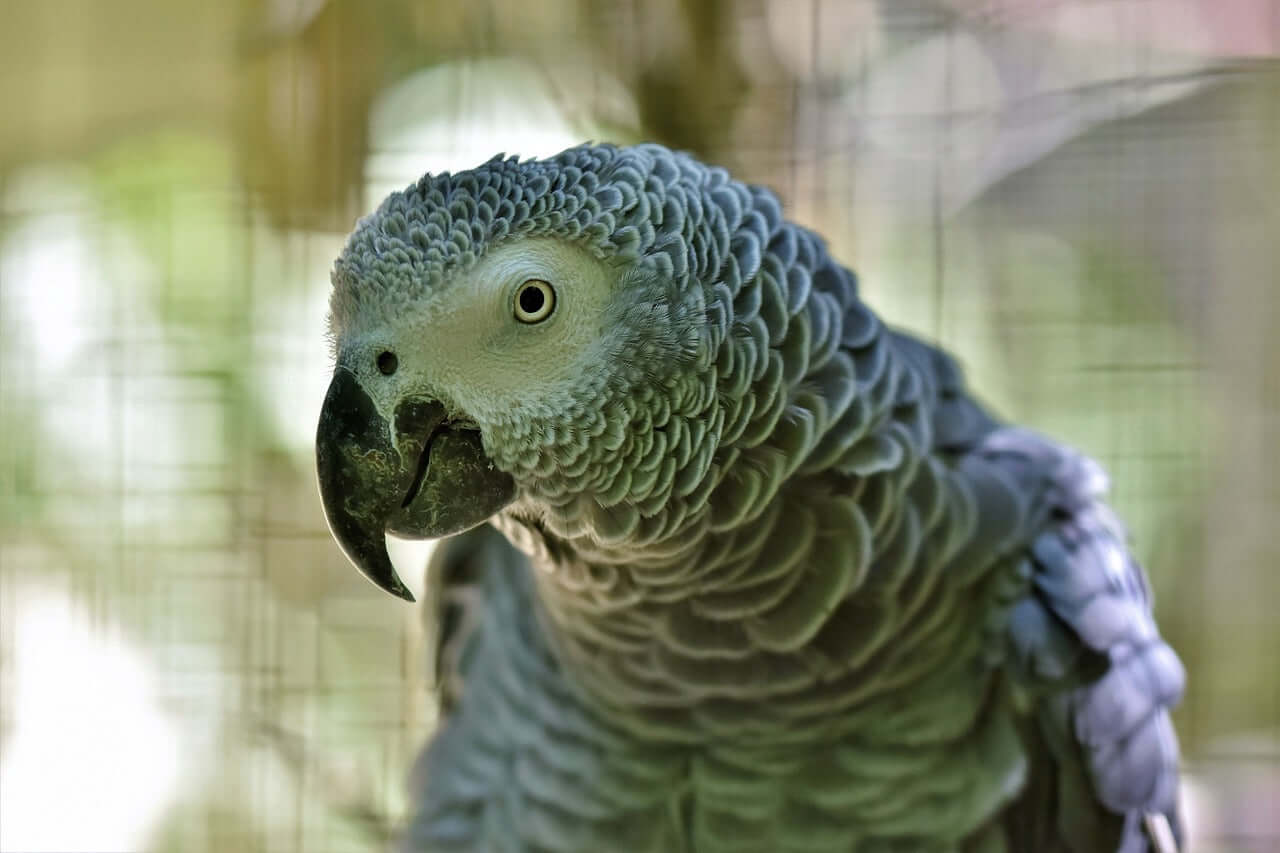
Best Talking Parrot for Beginners
If you’re looking for a talking Parrot, consider one of these beginner-friendly species:
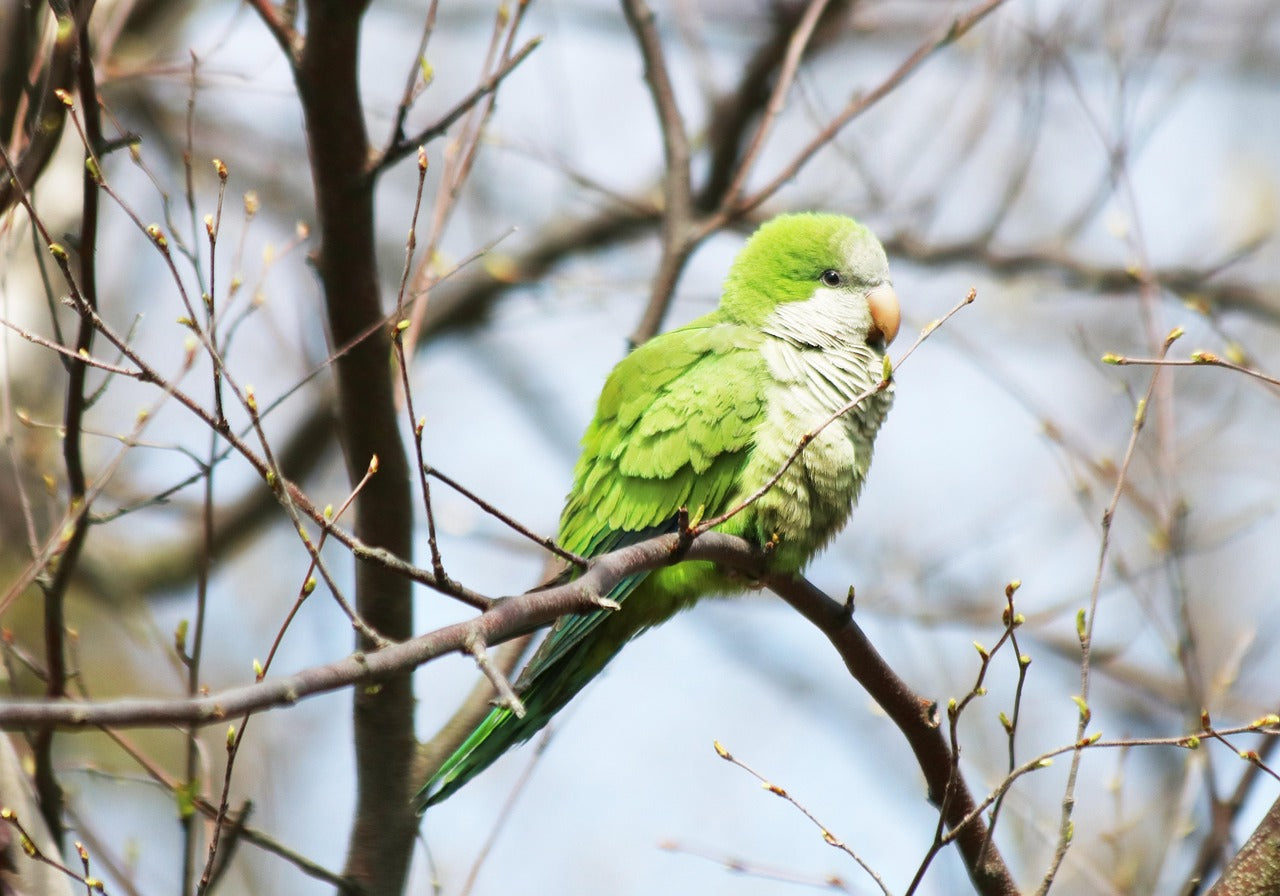
Quaker Parrots
These medium-sized parrots are known for their clear speech and ability to mimic human voices. They require patience when training but can develop an extensive vocabulary.
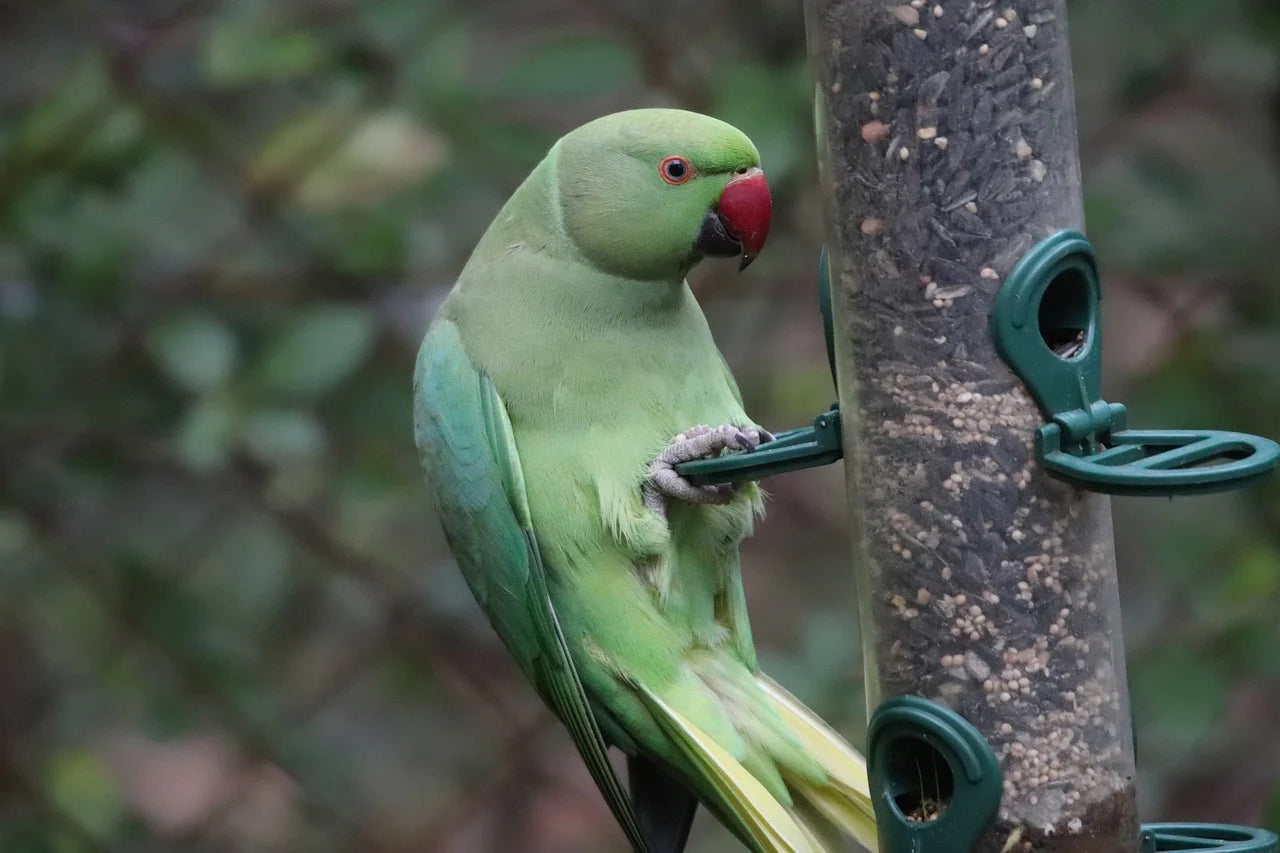
Indian Ringneck Parakeet
These medium-sized parrots are known for their clear speech and ability to mimic human voices. They require patience when training but can develop an extensive vocabulary.
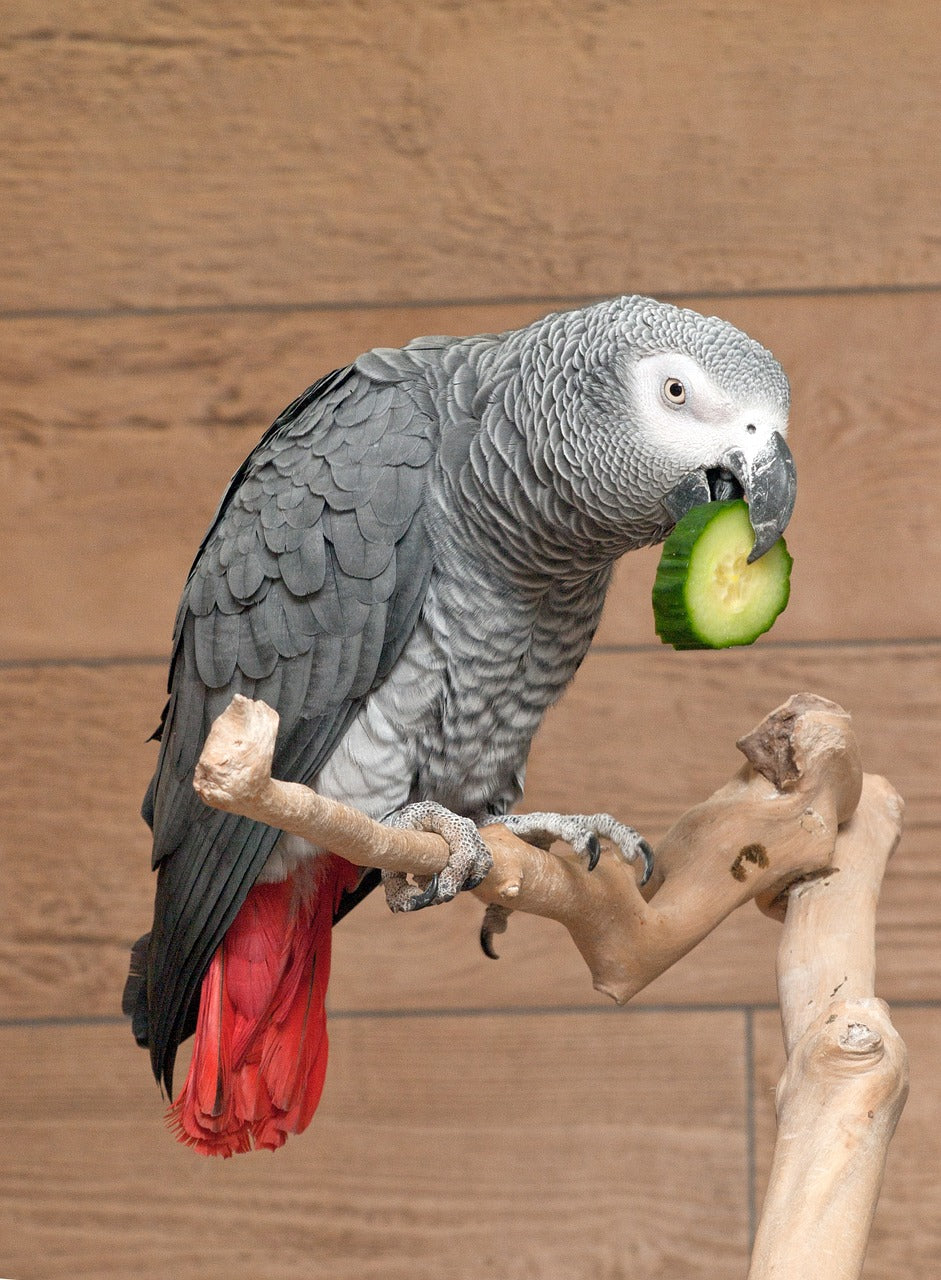
African Grey Parrots (For Experienced Beginners)
African Greys are considered the best talking parrots, capable of learning hundreds of words and understanding context. However, they require more advanced care and socialisation, making them suitable for committed beginners willing to put in extra effort.
Other things to consider:
-
Cage Placement
Place the cage in a location where the bird can interact with family members. While this is beneficial for socialisation, it's important to note that cages should be kept away from kitchens due to potential exposure to harmful fumes and temperature fluctuations. Additionally, placing cages near windows can lead to overheating from direct sunlight and exposure to drafts. A well-ventilated area, free from drafts and away from direct sunlight, is ideal.
-
Social Interaction and Mental Stimulation
It's worth emphasising that parrots are highly intelligent and require mental stimulation to prevent boredom, which can lead to behavioural issues like feather plucking. Providing a variety of toys,
opportunities for foraging, and regular interaction can help keep them mentally
stimulated. -
Veterinary Care
Regular veterinary check-ups are essential for early detection of potential health issues. It's advisable to consult with an avian veterinarian to establish a routine health check schedule and to discuss any
specific care needs for your parrot species. -
Lifespan and Commitment
Parrots are long-lived, with some species living up to 50 years or more. Potential owners should be aware of the long-term
commitment required and consider plans to ensure continuous care throughout the bird's life.
Keeping a parrot is a rewarding experience, but it requires proper knowledge, patience, and dedication. By providing a nutritious diet, fresh water, and a loving environment, you can ensure your pet lives a happy and healthy life.
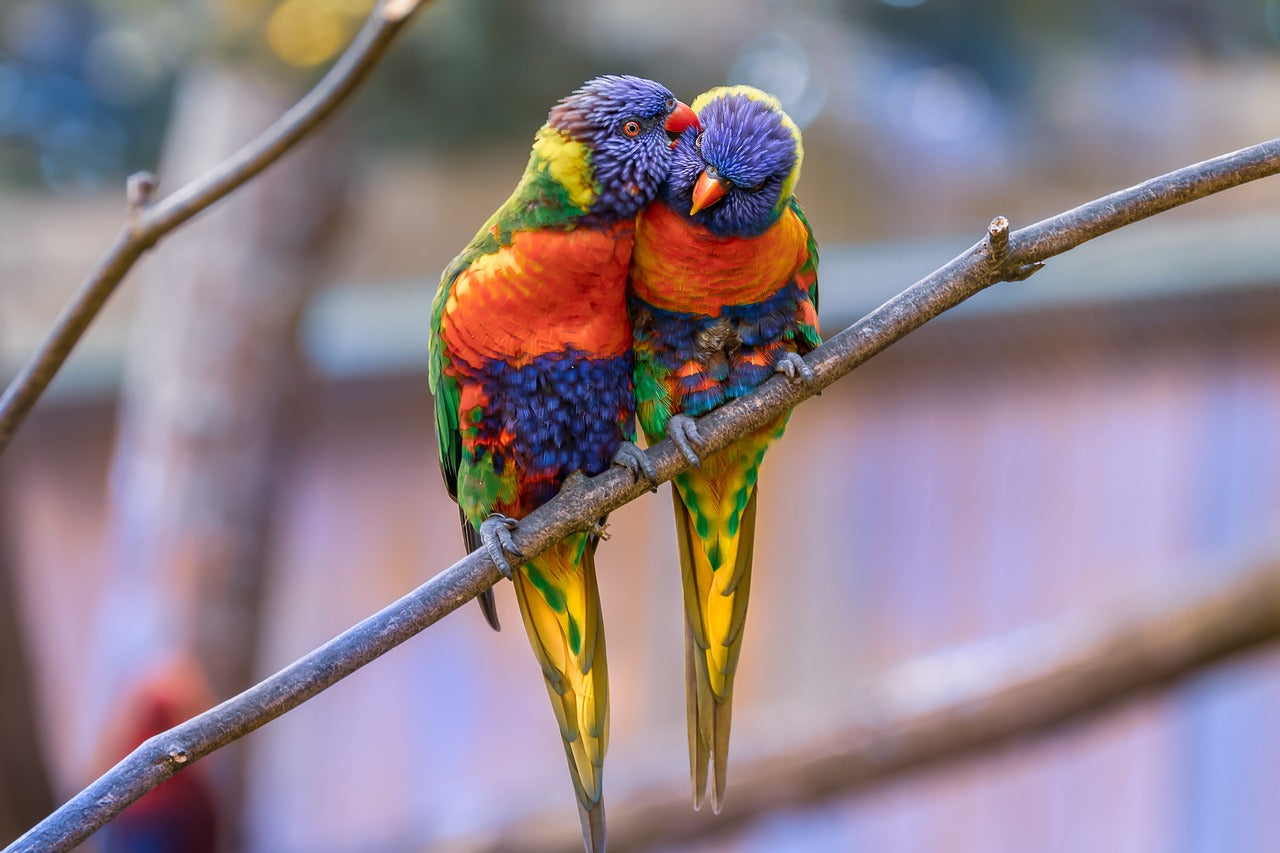
For parrot & parrot like owners, Haith’s bird food provides top-quality, nutritious mixes tailored to different parrot species. If you're a beginner, consider starting with a cockatiel, or lovebird before moving on to larger, more demanding species. With proper care and attention, parrots can become lifelong companions, bringing joy, laughter, and even conversation into your home!









